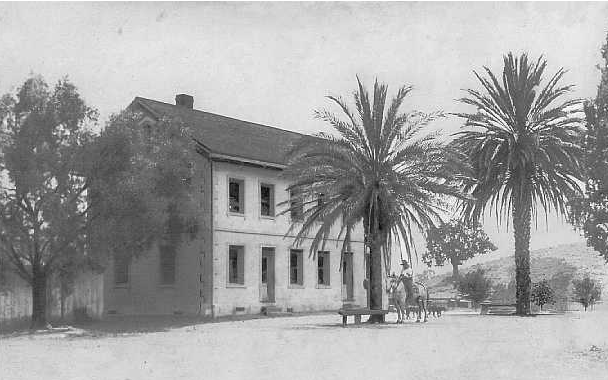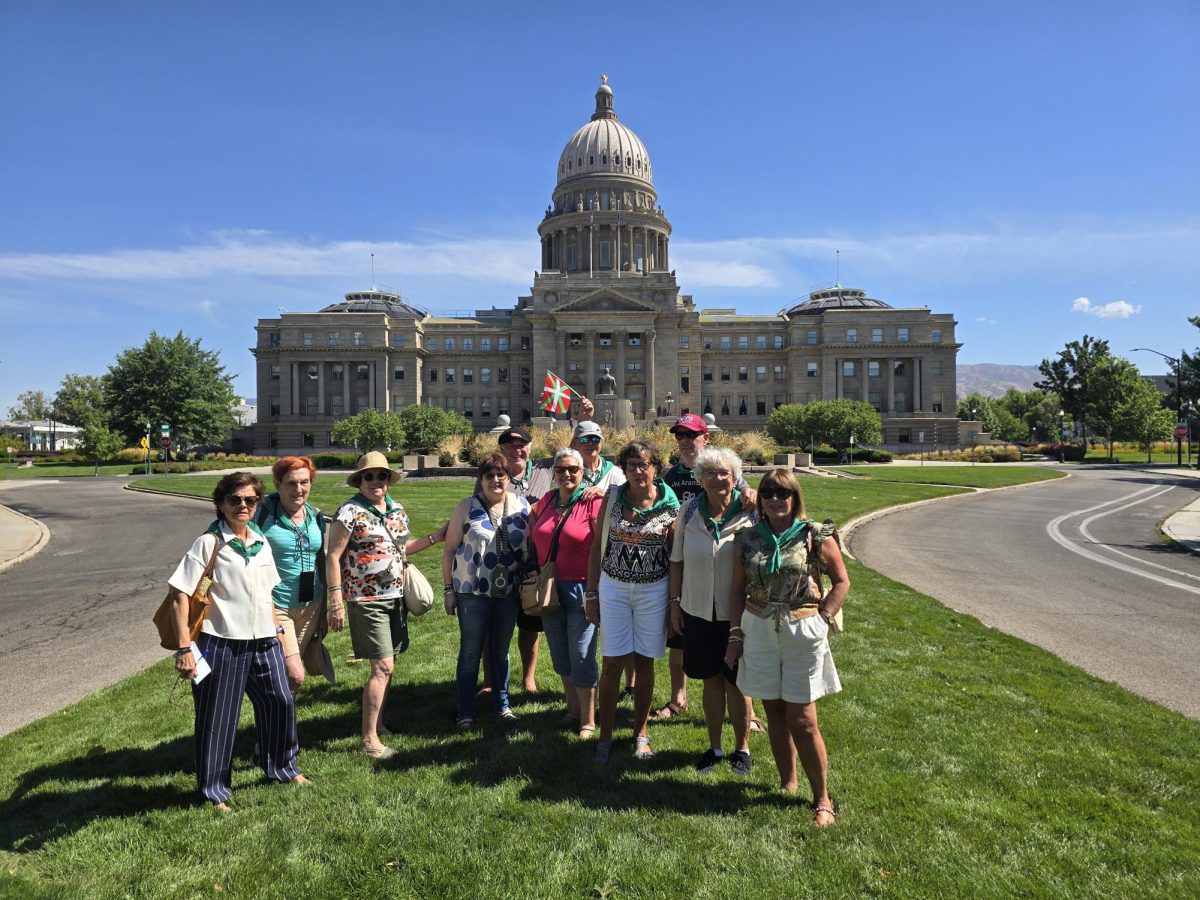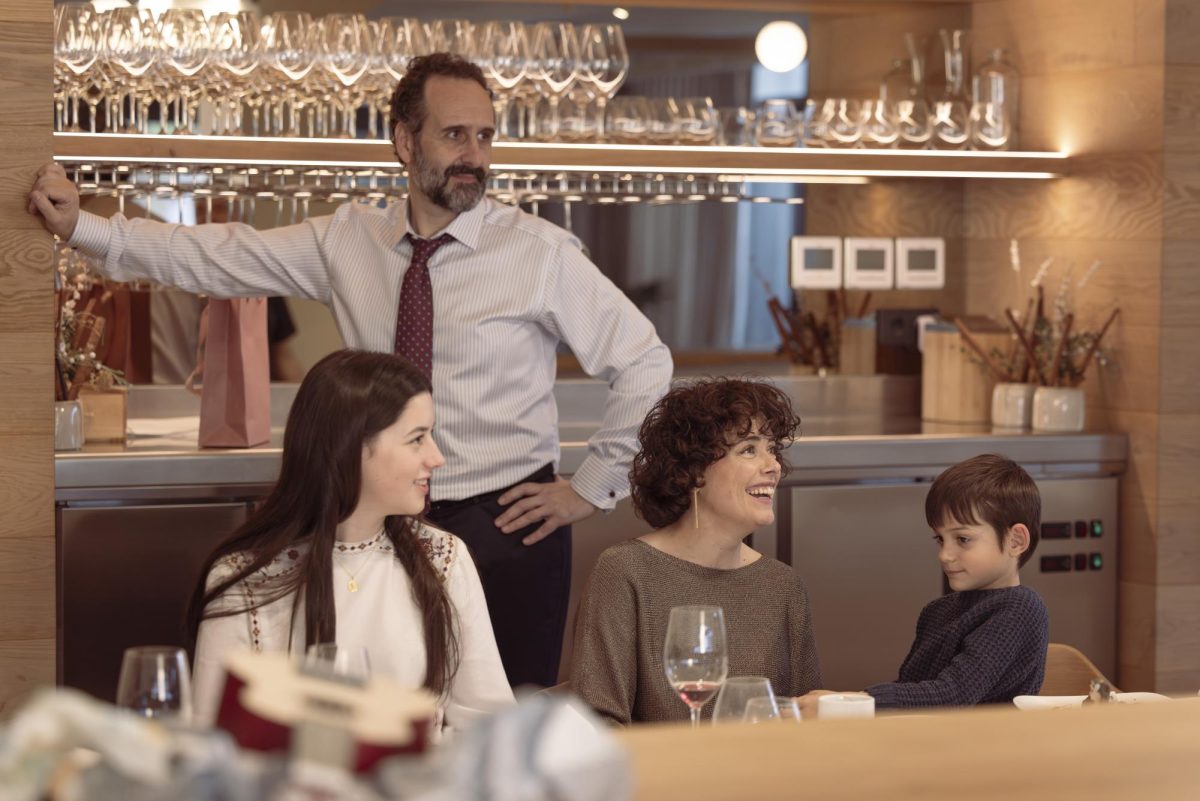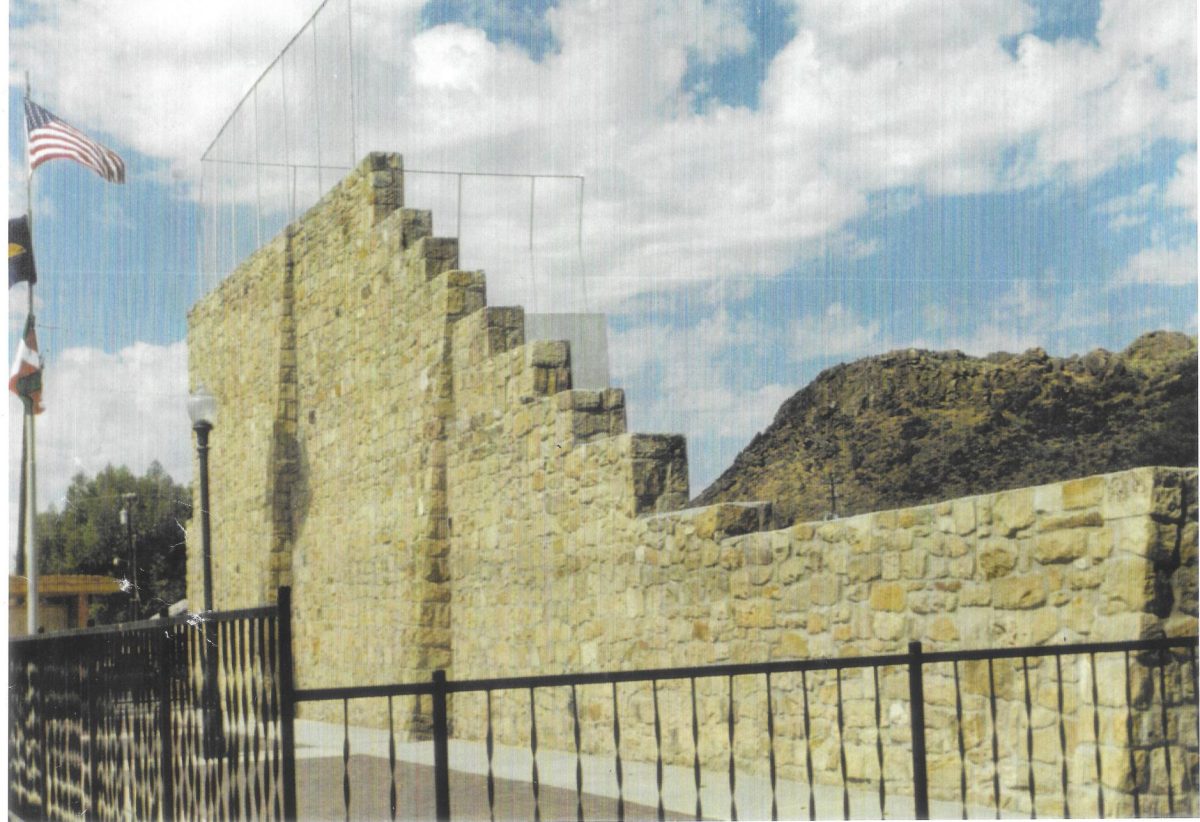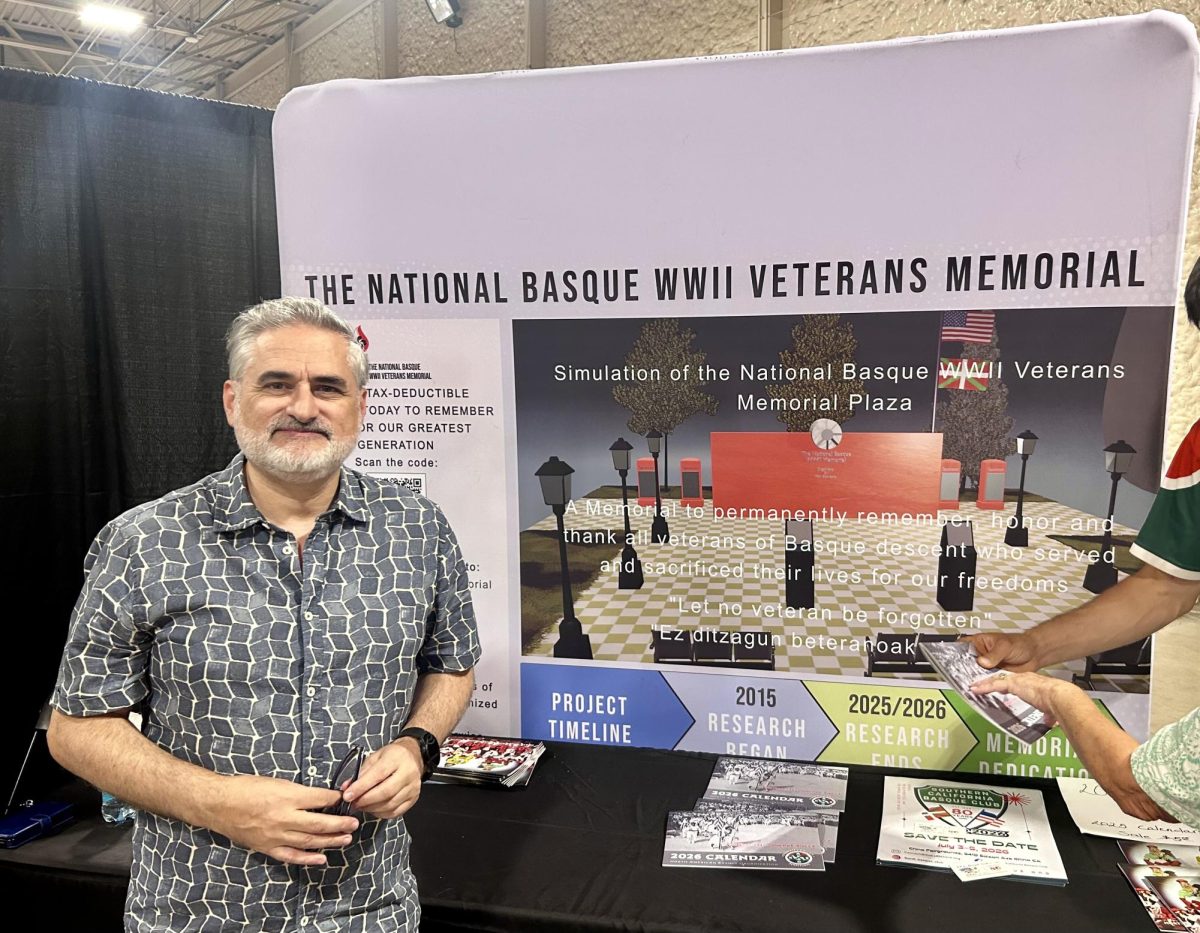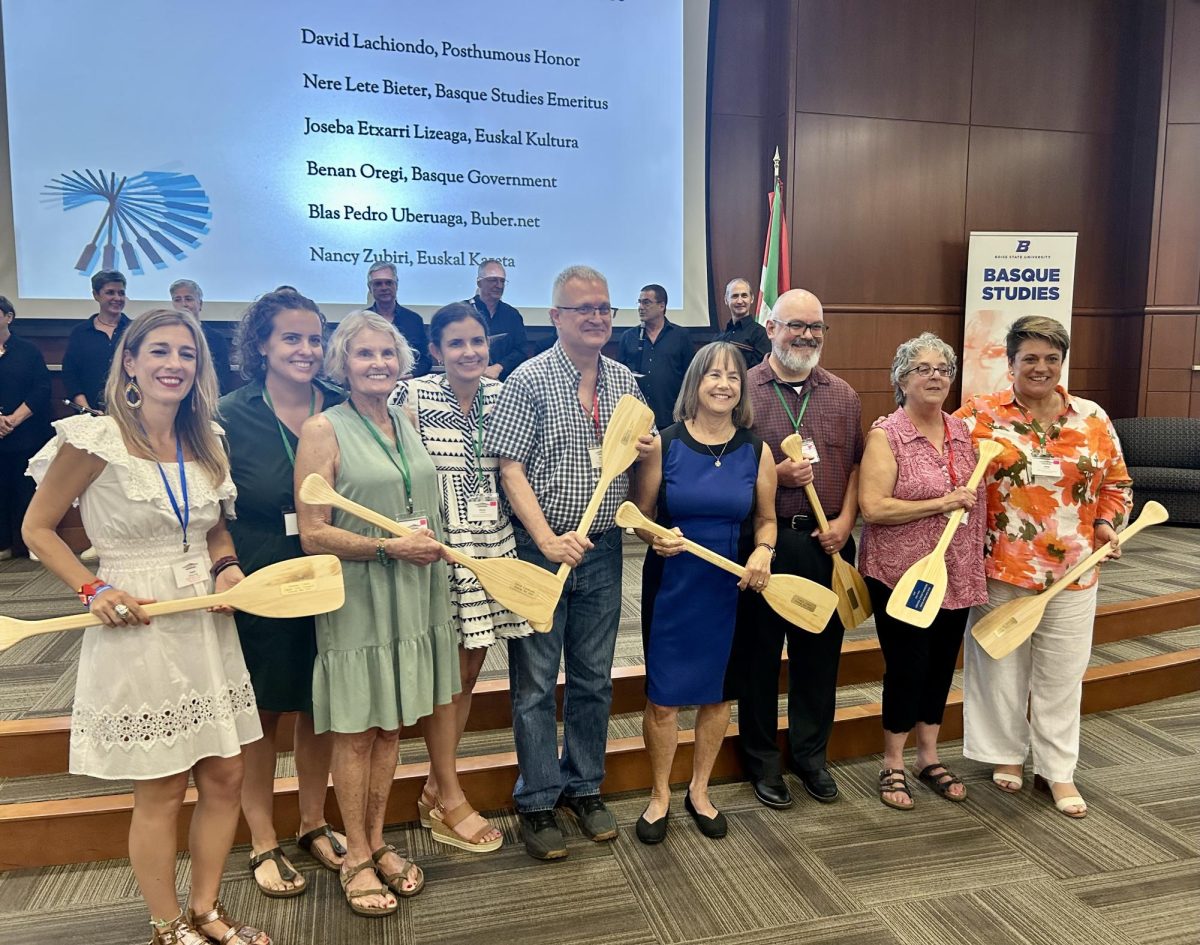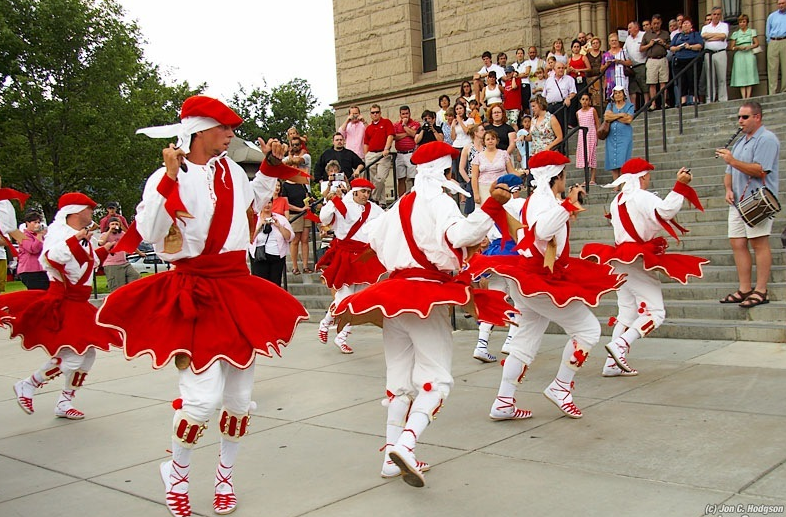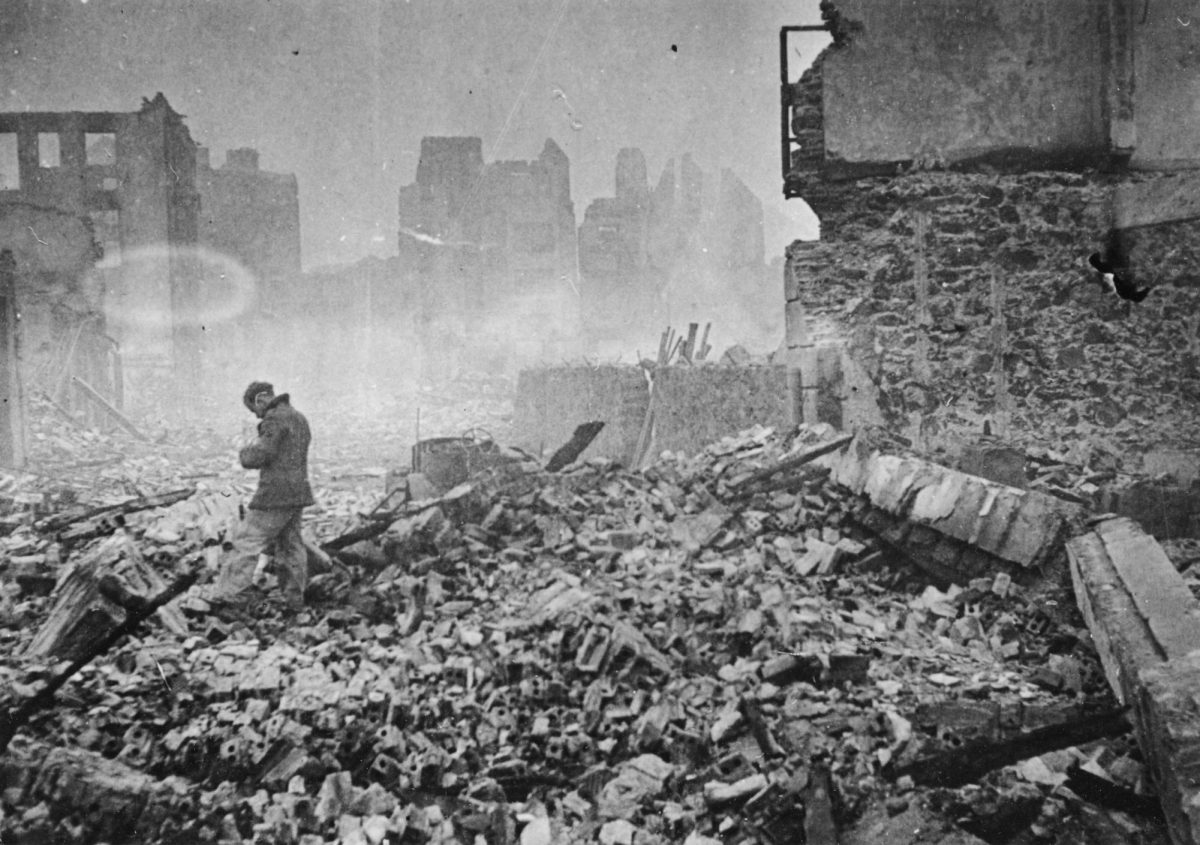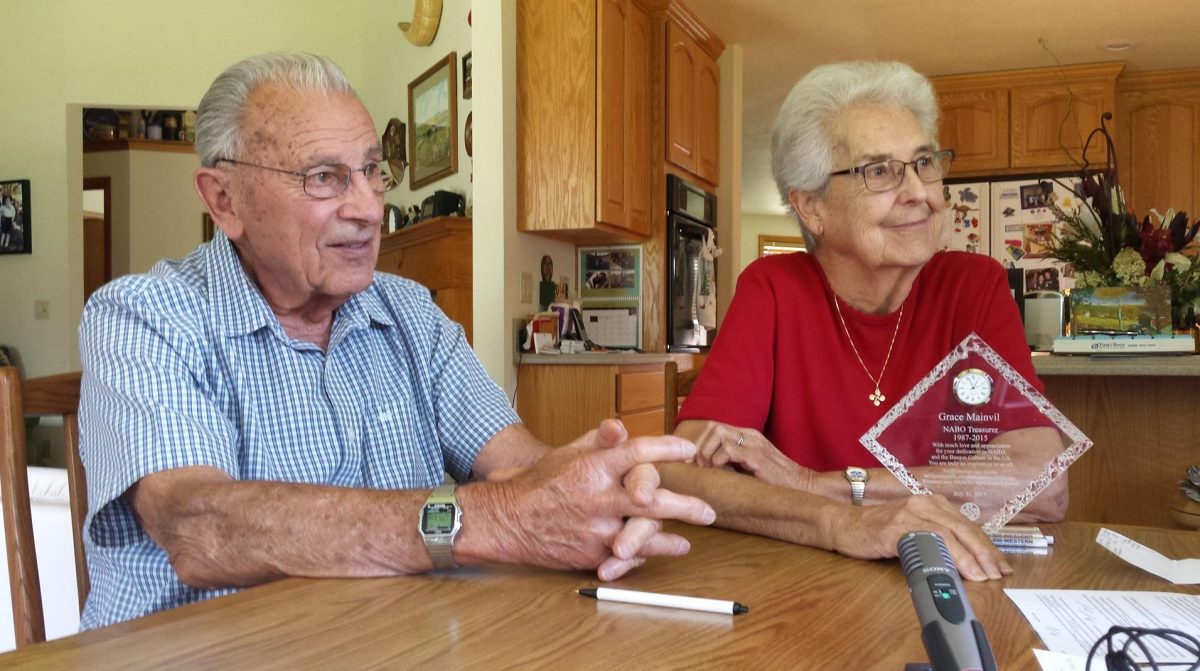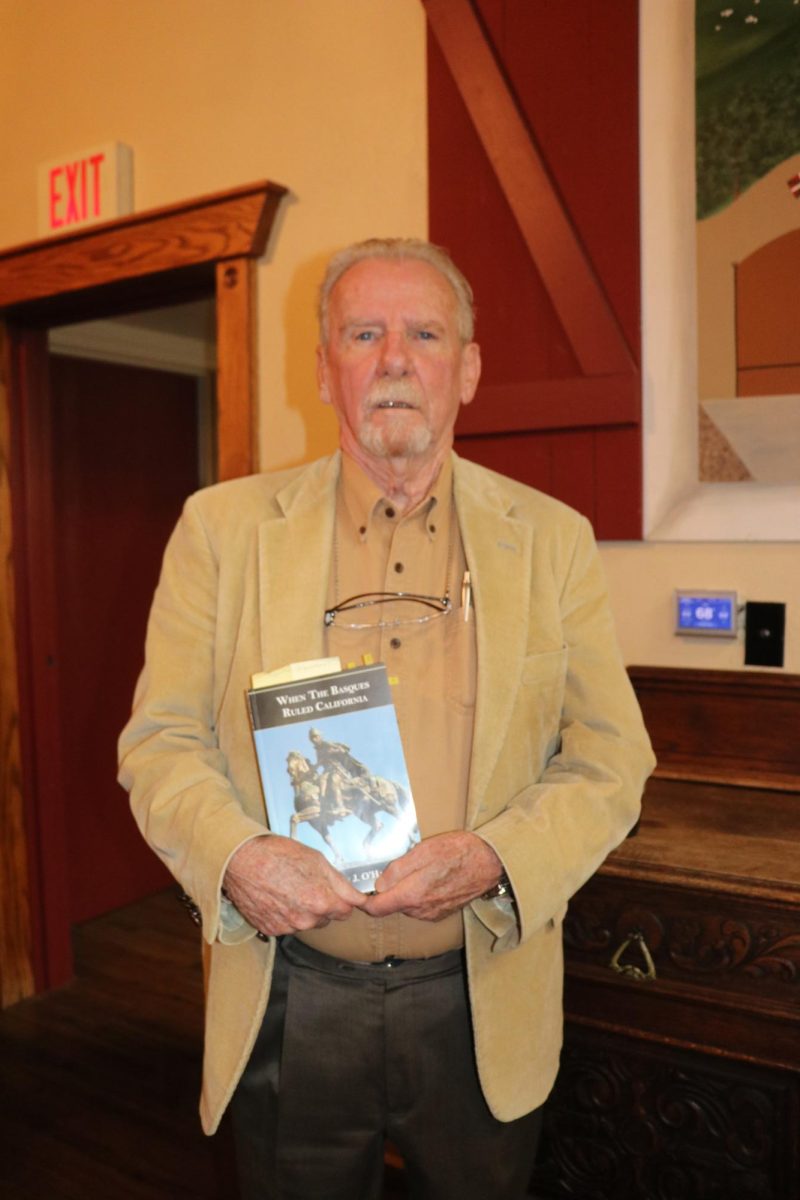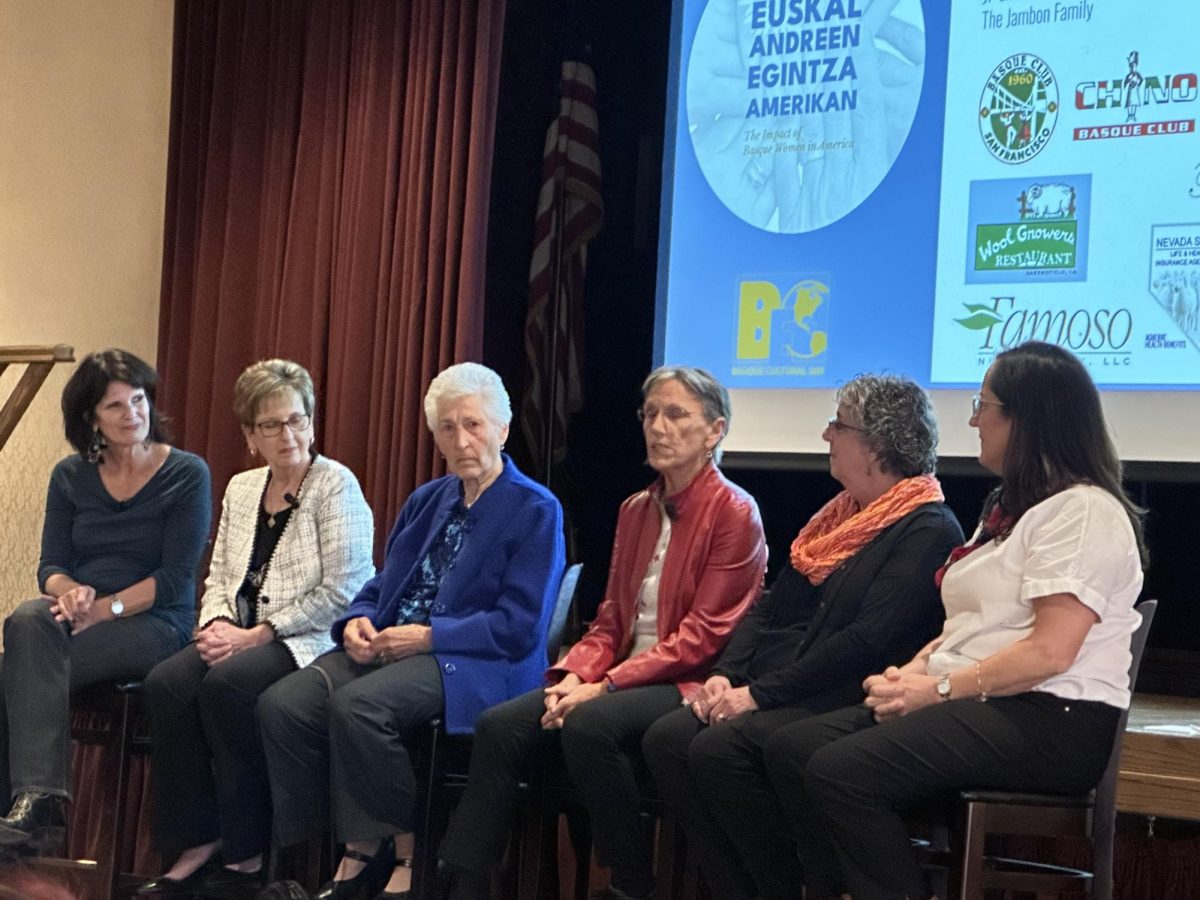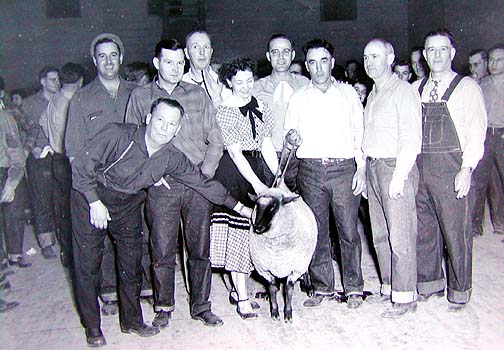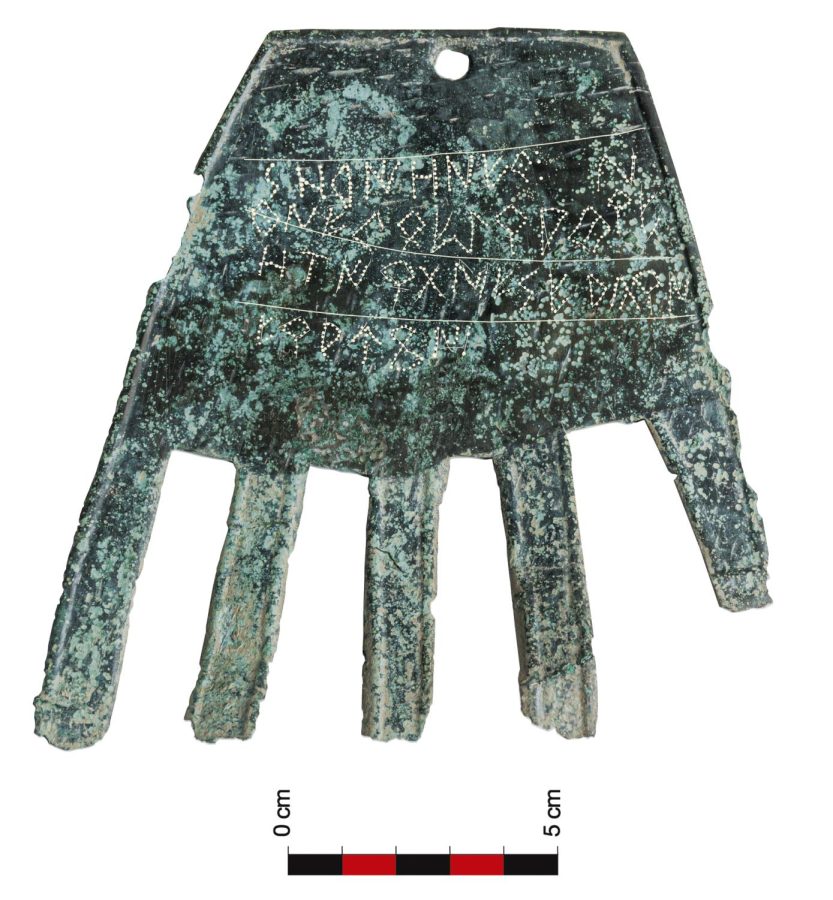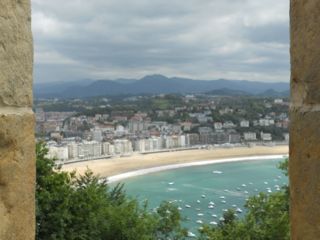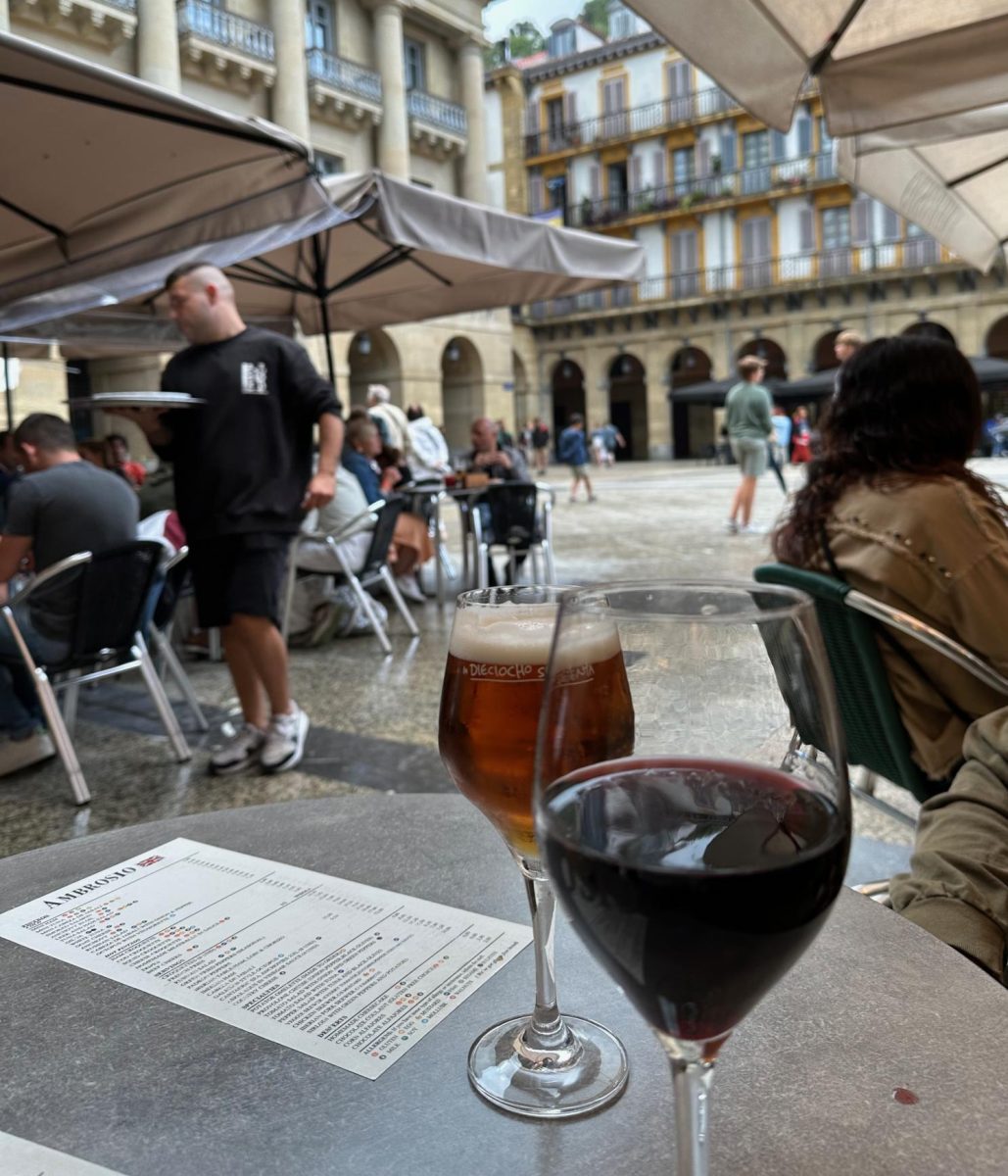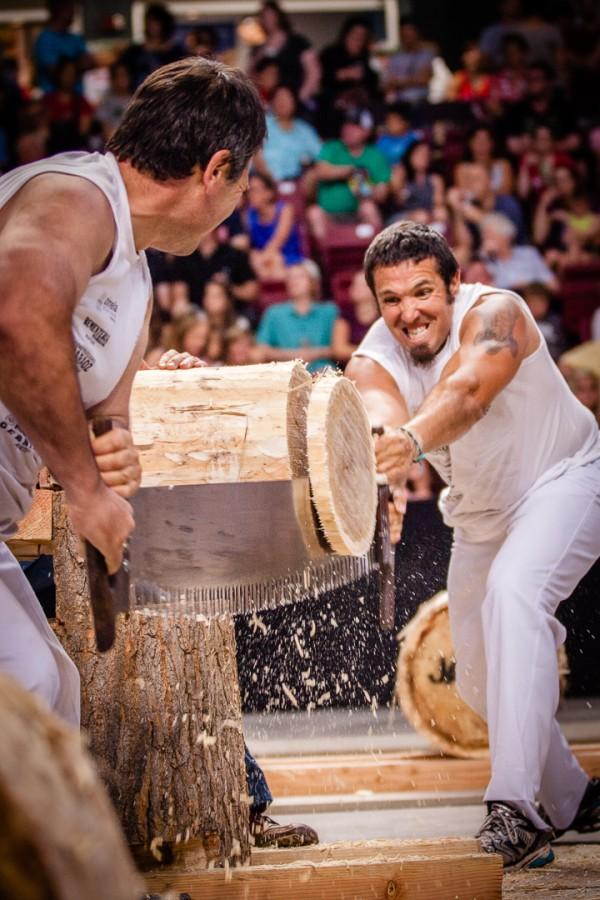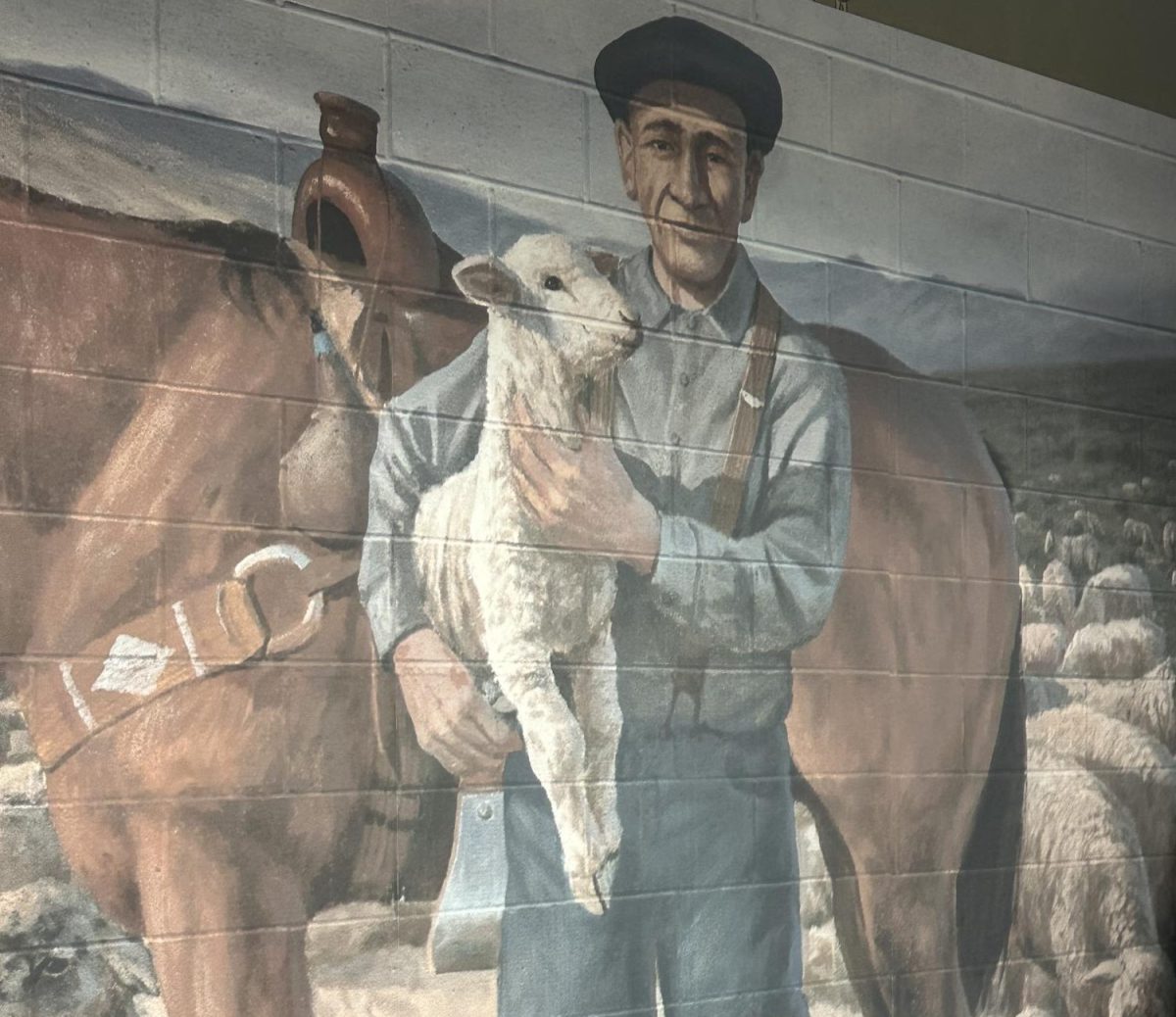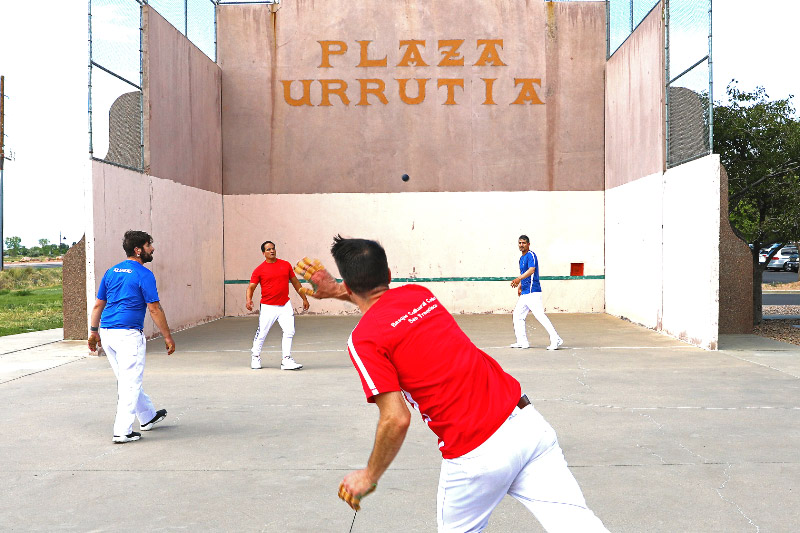Basque immigrants flocked to the American West from the late 1880s through the mid-1960s. The pioneers operated boarding houses, built handball courts and started businesses in places such as San Francisco, Mountain Home, Idaho, Jordan Valley, Oregon and Salt Lake City. Many of the buildings that housed those enterprises still stand today – a testament to the entrepreneurial spirit of the Basque people.
Author Nancy Zubiri interviewed over 400 individuals and visited many Basque communities in the U.S. while researching for her book, Travel Guide to Basque America. The photos included in the video above were all still open at the time the first edition of the book was published in 1998. A couple have since closed. Those are mentioned below.
Southern California
The Pioneer Bakery in Venice, California was started by Aldudes immigrant Jean Baptiste Garacochea in 1908, but finally was torn down in 2005. The Leonis Adobe in Calabasas, Calif. was built in the 1840s by rancher Miguel Leonis and still stands. The historic ranch is open to the public on weekends. Los Encinos State Historic Park in Encinos, Calif. was also an early Basque ranch and is still open, showing what ranch life was like in the early 1900s.
The French Hotel (31841 Camino Capistrano) built in 1840 in San Juan Capistrano, Calif. was a Basque hotel for a time and is now a historic building.
Noriega’s Hotel in Bakersfield, Calif., established in 1873, was a Basque hotel and restaurant for many years. As part of its charm, it would seat strangers at long tables together. The restaurant only recently closed in 2020, but the building and its fronton still stand at the same location, 525 Sumner St.
The home of the Noriega family in Bakersfield, Calif. was built in 1900 and still stands. It has been remodeled and the Noriega House is currently rented out for weddings and parties.
Cabins belonging to Basque gold miner Pete Aguereberry still stand in Death Valley National Monument in California.
Northern California
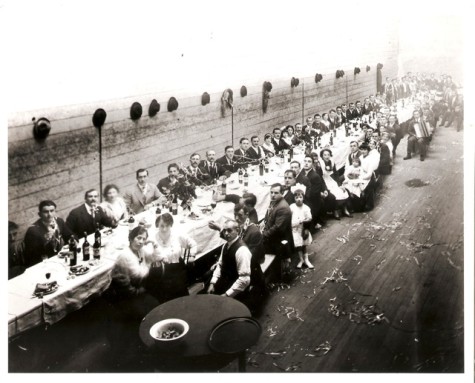
La Cancha, an indoor handball court with rooms around the outside of the court, was in operation as a Basque hotel as early as 1907. It stood on Pacific Street in San Francisco until the 1960s, when it was torn down to build a low-income apartment building. Read more about early handball courts.
Nevada
The Star Hotel, in Elko, Nevada, was build in 1910 and is still open and popular. A 1924 historic curtain stands in the Eureka Opera House in Eureka, Nevada.
Basque Boardinghouses Exhibit at the Basque Museum
Idaho
The Basque Museum in Boise, Idaho was initially housed in a historic Basque boardinghouse, the Cyrus Jacobs-Uberuaga House. The museum has expanded to a bigger commercial building next door, but over the years, the historic boardinghouse has been refurbished and decorated to reflect the 1920s boardinghouse era. More about the only Basque Museum in the U.S.
The house that was home to the Bideganeta boardinghouse (495 North Third East St.) still stands in Mountain Home, Idaho. The former Bengoechea Hotel (195 North Second West St.) also still operates as a commercial building and boasts a sign on top that reads “Bengoechea Block 1910.” It stands next to the historic 1907 handball court built by Pedro Anchustegui, which has been refurbished and renamed Basque Park.
Oregon
Jordan Valley, Oregon is home to another historic handball court. Read more about this court and other handball courts.
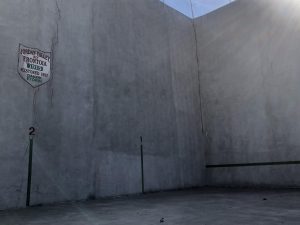
Utah
The former Hogar Hotel (126 South 200 West) in Salt Lake City most recently housed an antiques gallery. Claudia and John Landa ran the Basque hotel from 1927 to 1977. It was the heart of Utah’s Basque community during that time. It was sold after John Landa’s death. As of right now, the building still stands as one of the city’s only remaining High Victorian Italianate architecture from the 1880s-’90s, but was for sale.
All these photos and information come from the book “Travel Guide to Basque America,” a history of Basque communities in the U.S.
Prof. Jeri Echeverria also wrote a comprehensive book about Basque boardinghouses in the U.S., Home Away From Home: A History of Basque Boardinghouses.
We may earn a small commission from the sale of these books.

